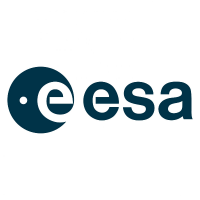Internal Research Fellow (PostDoc) in Model Based Systems Engineering and Digitalization
European Space Agency - ESA
Job Requisition ID: 18732
Application Deadline: 31 July 2024 23:59 CET/CEST
Establishment: ESTEC, Noordwijk, Netherlands
Directorate: Directorate of Technology, Engineering and Quality
Publication: External Only
Type of Contract: Internal Research Fellow
Date Posted: 19 June 2024
Internal Research Fellowship Opportunity in the Directorate of Technology, Engineering and Quality.
ESA is an equal opportunity employer, committed to achieving diversity within the workforce and creating an inclusive working environment. For this purpose, we welcome applications from all qualified candidates irrespective of gender, sexual orientation, ethnicity, beliefs, age, disability or other characteristics. Applications from women are encouraged.
This post is classified F2 on the Coordinated Organisations’ salary scale.
Location
ESTEC, Noordwijk, Netherlands
Our team and mission
The Section, a large multicultural and dynamic team, is involved in the following areas:
- Systems engineering support to the space missions of the various ESA directorates: Human and Robotic Exploration Programmes, Space Transportation, Earth Observation Programmes, Navigation, Science, Exploration and Robotics, Operations, and Connectivity and Secure Communications;
- Feasibility and early-phase studies of future ESA missions using the state-of-the-art Concurrent Design facility (CDF);
- Supporting the digitalisation of engineering and providing methodologies and tools using model-based systems engineering, augmented and virtual reality, machine learning and AI;
- Initiating and performing technology research and development (R&D) activities targeting strategic fields of systems and concurrent engineering, including clean space, eco-design and the latest innovation trends;
- Contributing to the evolution of systems engineering methodologies and standards.
You can find out more by visiting the following websites:
- CDF
- Systems Engineering Division
You are encouraged to visit the ESA website: https://www.esa.int/
Field(s) of activity/research for the traineeship
You will conduct applied research in the fields of model-based systems engineering (MBSE) and digitalisation, with a particular focus on improving the application of the methodology and tailoring tools to the needs of space mission design and developments in ESA programmes and projects, aiming to streamline processes that can enable schedule reduction, reduce target project life cycle cost, and support quality improvement.
The purpose of this research fellowship is to propose, implement and validate solutions to the theoretical and practical issues arising during the space mission life cycle while ensuring synergies with past and ongoing developments in digital engineering and MBSE within the Agency.
Your tasks will include:
- analysing the needs and requirements with respect to model-based systems engineering for space missions and the areas in which the application of the methodology and technology would bring substantial benefits;
- proposing, implementing and validating solutions that will lower the threshold for the adoption of model-based techniques by stakeholders with a wide range of backgrounds, skills, and knowledge levels;
- identifying innovative methods to capture system requirements and architectures in user-friendly ways, for example through visualisation, augmented reality, immersive presence and digital assistants;
- collaborating on the definition and prototype implementation of technology solutions to evolve the adoption of MBSE from system to subsystem level, leveraging the experience and achievements of the preliminary system applications and the technologies already developed;
- analysing state-of-the-art methodologies and technologies, such as visualisation and data analysis, with a focus on the improvement of team communication, and assessing the potential for infusion in space applications, performing practical experiments where possible to validate such potential;
- at the request of the responsible technical officer, participating in and contributing to ongoing technology research and development activities relevant to the line of applied research, identifying technology gaps in driving future developments and proposing approaches to address these gaps as input to the relevant ESA technology roadmaps;
- contributing to semantic interoperability, i.e. how to use conceptual data models (ontologies) to drive meaningful data exchange;
- supporting the ESA project teams in the adoption of MBSE, advising on the best modelling strategy for the needs identified and potentially providing hands-on training to non-experts as required;
- investigating methods to derive knowledge from data available in both legacy and MBSE model artifacts, for example using natural language processing, artificial intelligence, and machine learning techniques, to improve data quality, model creation and maintenance while promoting reuse;
- actively participating in the dissemination of the results achieved within the Agency and with the European space community and contributing to working groups to drive forward the state of practice.
Technical competencies
Knowledge relevant to the field of research
Research/publication record
Ability to conduct research autonomously
Breadth of exposure coming from past and/or current research/activities
Ability to gather and share relevant information
General interest in space and space research
Behavioural competencies
Result Orientation
Operational Efficiency
Fostering Cooperation
Relationship Management
Continuous Improvement
Forward Thinking
Education
A PhD in systems engineering, computer science, informatics or a related field is required. The subject of your thesis should be relevant to the task description provided above, for example involving a model-based approach.
Additional requirements
You should also have:
- relevant research experience in the use of state-of-the-art model-based techniques for the design and development of complex systems;
- excellent interpersonal and communication skills, with a proactive and positive attitude toward interacting with the systems engineering and MBSE community, along with the ability to work in a multicultural environment, both independently and as part of a team, a methodological approach, and good organisational skills;
- an interest in space, with the ability to and an interest in becoming actively involved in prospective interdisciplinary research.
The ideal candidate will have:
- a strong theoretical (academic) background to maintain the rigour required to have semantics suitable for (automated) verification of models and potential automatic generation of artefacts, taking a model-based approach;
- the system-based view required to build up a multi-model approach based on different views of the system, relating for example to data and the spacecraft database, real-time and interaction patterns, dependability and hardware deployment;
- an awareness and vision of the processes and tools enabling the definition of the toolset architecture;
- the ability to communicate with a wide range of stakeholders and convert their needs and concerns into practical solutions based on sound model-based engineering principles, supporting them in the transition from idea to solution;
- a pragmatic approach that will, based on the knowledge of the practices acquired during the activity, enable the adaptation of theory to real-life industrial needs with the goal of improving industrial competitiveness.
This position, located at the intersection between academic approaches and industrial applications, and between model-based techniques and systems engineering, is at the core of the challenges relating to the current embedded system. It also provides an opportunity to transition gradually from an academic context into an industrial setting.
Experience with model-based system engineering tools and languages must be demonstrated convincingly as part of the job application process. Solid software engineering skills are considered a major asset for the position, as a significant part of the work will require that you integrate or adopt existing tools or develop new tools or add-ons to resolve the gaps identified.
The working languages of the Agency are English and French. A good knowledge of one of these is required. Knowledge of another Member State language would be an asset.
Other information
For behavioural competencies expected from ESA staff in general, please refer to the ESA Competency Framework.
For further information on the Internal Research Fellowship Programme please visit: Internal Research Fellowship
The Agency may require applicants to undergo selection tests.
In addition to your CV and your motivation letter, please add your proposal of no more than 5 pages outlining your proposed research in the "additional documents" field of the "application information" section.
At the Agency we value diversity and we welcome people with disabilities. Whenever possible, we seek to accommodate individuals with disabilities by providing the necessary support at the workplace. The Human Resources Department can also provide assistance during the recruitment process. If you would like to discuss this further please contact us at [email protected].
--------------------------------------------------------------------------------------------------------------------------------------------------
Please note that applications are only considered from nationals of one of the following States: Austria, Belgium, the Czech Republic, Denmark, Estonia, Finland, France, Germany, Greece, Hungary, Ireland, Italy, Luxembourg, the Netherlands, Norway, Poland, Portugal, Romania, Spain, Sweden, Switzerland, and the United Kingdom. Nationals from Latvia, Lithuania, Slovakia and Slovenia, as Associate Member States, or Canada as a Cooperating State, can apply as well as those from Bulgaria, Croatia and Cyprus as European Cooperating States (ECS).
According to the ESA Convention, the recruitment of staff must take into account an adequate distribution of posts among nationals of the ESA Member States*. When short-listing for an interview, priority will first be given to candidates from under-represented Member States*.
In accordance with the European Space Agency’s security procedures and as part of the selection process, successful candidates will be required to undergo basic screening before appointment conducted by an external background screening service.
*Member States, Associate Members or Cooperating States.
Apply now »
Opslaget er indhentet automatisk fra virksomhedens jobsider og vises derfor kun som uddrag. Log ind for at se det fulde opslag eller gå videre til opslaget her:




